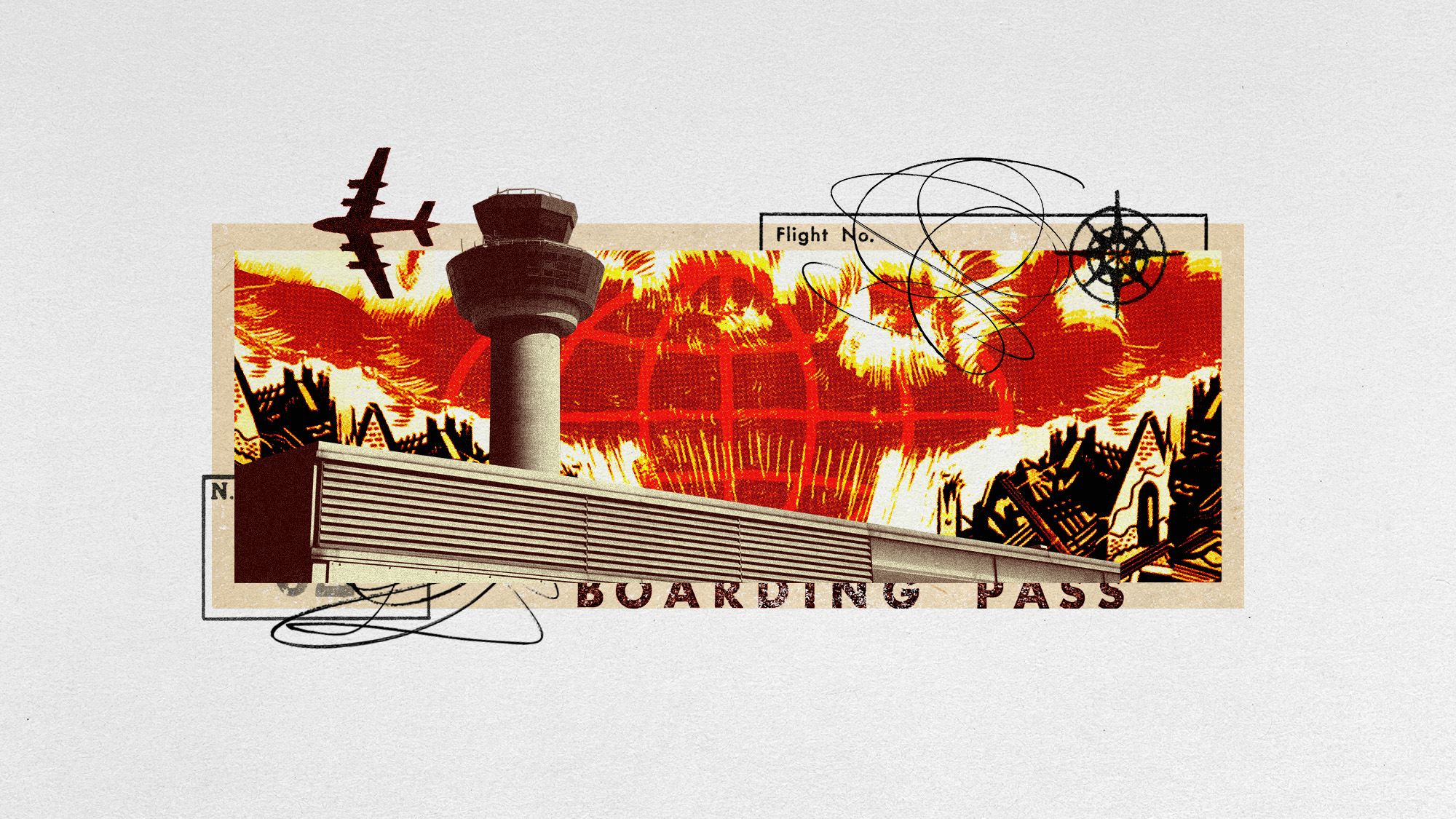How global conflicts are reshaping flight paths
Airlines are having to take longer and more convoluted routes to avoid war zones

A free daily email with the biggest news stories of the day – and the best features from TheWeek.com
You are now subscribed
Your newsletter sign-up was successful
Global conflicts are changing air travel. Since Russia invaded Ukraine in February 2022, commercial flights have been forced to divert around Ukraine, while most Western airlines have been banned from using Russian airspace.
Meanwhile, the onset of missile strikes between Israel and Iran caused dozens of flights to busy airports like Doha in the Middle East to be diverted or cancelled. Live aviation tracking maps also show "gaping holes" over Israel, Iraq and Iran, said CNN.
These significant re-routes place a "bigger burden on airlines’ bottom lines – and on the environment", said The Guardian. Airlines are being forced to "respond rapidly" to the changing geopolitical landscape.
The Week
Escape your echo chamber. Get the facts behind the news, plus analysis from multiple perspectives.

Sign up for The Week's Free Newsletters
From our morning news briefing to a weekly Good News Newsletter, get the best of The Week delivered directly to your inbox.
From our morning news briefing to a weekly Good News Newsletter, get the best of The Week delivered directly to your inbox.
Pilots are increasingly finding "themselves sharing the skies with barrages of drones and missiles" near conflict areas, and continually responding to the changing threats from events on the ground.
'Extraordinary detours'
Several Middle Eastern countries closed their airspace after Iran attacked a US military base in Qatar, sending some mid-air flights into disarray. One flight bound for Paris from Australia "spent more than 15 hours in the air" before flying "back where they started from" in Perth, said Bloomberg.
A backlog of subsequent flights that routinely travel through closed airspace in the Middle East were forced to "make extraordinary detours", which cost airlines "thousands of pounds in fuel" that could translate into "higher ticket prices for passengers in the long run", said The Telegraph.
For instance, a formerly five-hour flight from Moscow to Doha now takes nearly seven-and-a-half hours as pilots are forced to make an "extraordinary dog-leg" around the west of Ukraine and bypass Iran by diverting over Egypt and Saudi Arabia.
A free daily email with the biggest news stories of the day – and the best features from TheWeek.com
The Middle Eastern corridor has become "vital for global aviation", said Al Jazeera. Many Europe to Asia flights pass through the "few narrow channels" that had existed, but even these are now "affected too" due to the recent conflicts, and passengers should "brace for impact" on ticket prices.
'Days to clear the backlog'
Airlines are making these diversions and absorbing the extra costs to avoid the "worst-case scenario" – a plane "accidentally or intentionally" brought down by missiles, said Reuters. The industry "prides itself" on safety, so carriers are "racking up costs and losing market share from cancelled flights and expensive re-routings, often at short notice".
For passengers, navigating the inconvenience of sudden changes or cancellations of flights is becoming increasingly difficult. "Tens of thousands of passengers" were stranded in Doha airport earlier this week after it was abruptly closed, and it will take "days to clear the backlog", said travel expert Simon Calder in The Independent.
UK and EU passengers beginning their journeys are in a "strong position" as they must be provided with "a hotel and meals until you can be flown out". Meanwhile, those who haven't left the UK yet are "entitled to be flown to their destination as soon as possible by any carrier that has seats available".
It's not such good news if the booking is with a non-European airline starting outside Europe. Then "you have no such rights". You will be offered a new flight or a refund, but there is no guarantee of accommodation or expenses in the meantime.
Richard Windsor is a freelance writer for The Week Digital. He began his journalism career writing about politics and sport while studying at the University of Southampton. He then worked across various football publications before specialising in cycling for almost nine years, covering major races including the Tour de France and interviewing some of the sport’s top riders. He led Cycling Weekly’s digital platforms as editor for seven of those years, helping to transform the publication into the UK’s largest cycling website. He now works as a freelance writer, editor and consultant.